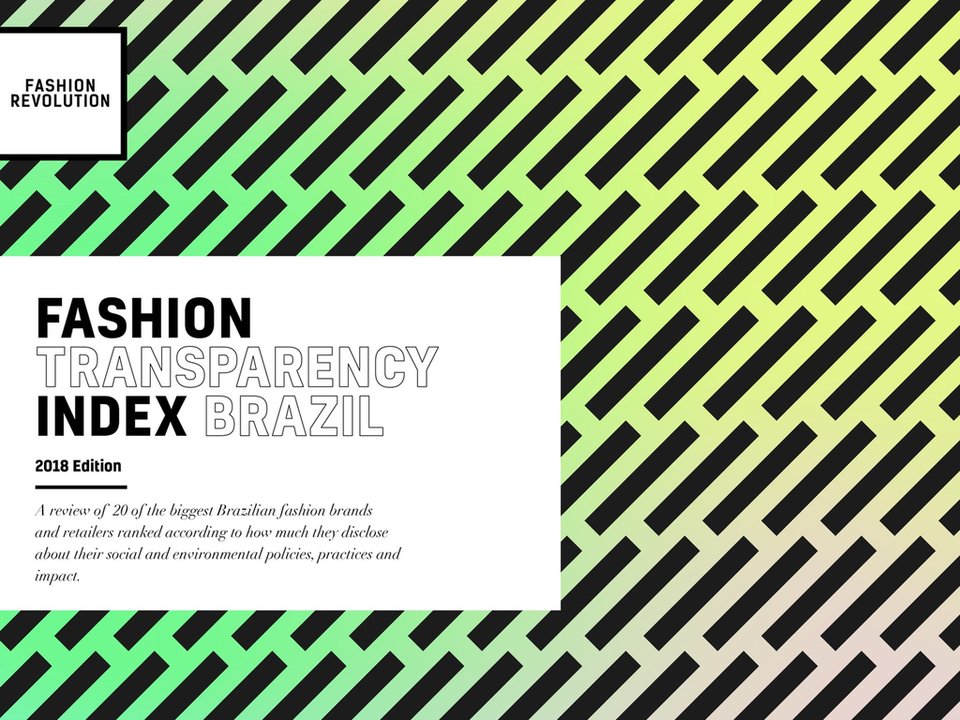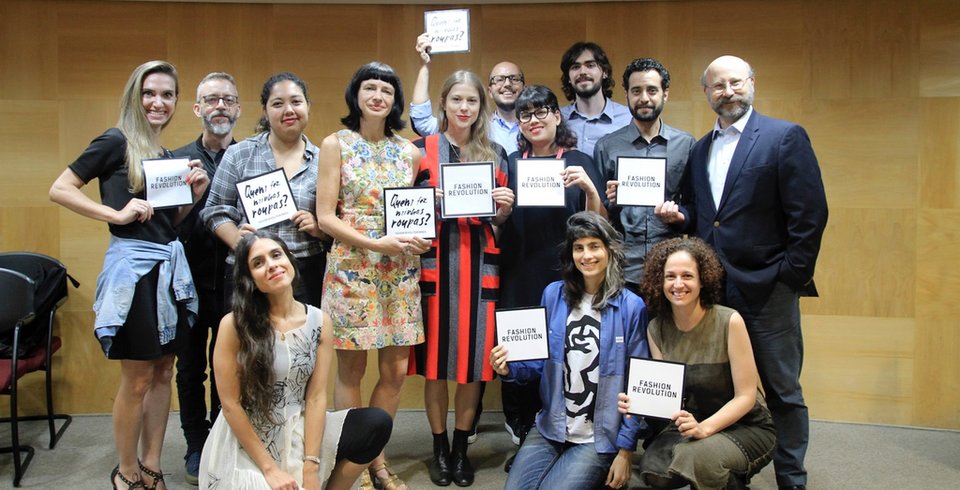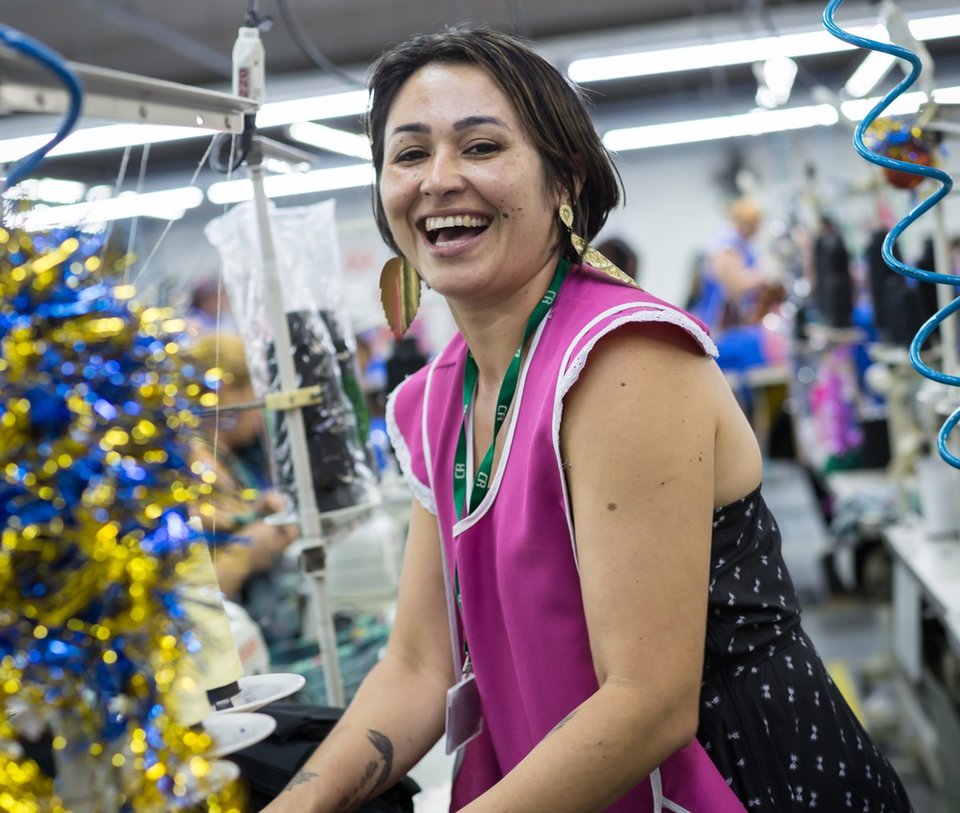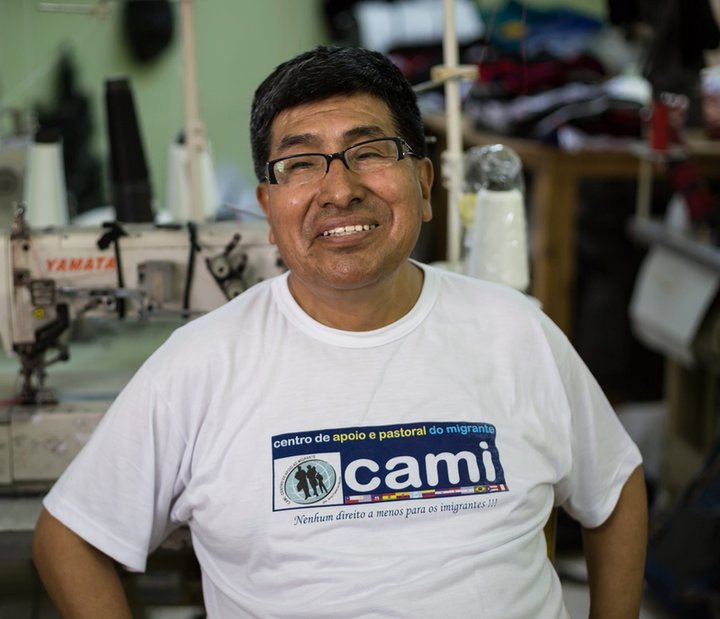Breakthrough Moments: From disruptive movement to constructive brand accountability
Transparency has the power to push the industry out of its comfort zone and drive accountability. Our work with Fashion Revolution has shown that with disruption comes the possibility to collaborate on solutions.

For three years we have partnered with Fashion Revolution – the global movement driving industry transparency – on the Fashion Transparency Index. This is a global tool to review and rank the world’s largest fashion brands according to how well they disclose their supply chain policies and practices, and their social and environmental impact. Having this crucial information publicly available means consumers, governments and civil society can hold brands to account and encourage better practices throughout the industry.
In 2018, a key breakthrough moment came when Fashion Revolution adapted the global index to Brazil, the fourth-largest fashion producer in the world.
The Brazilian fashion industry is a complex market where most of what’s produced stays in the country. As opposed to export-heavy markets, it’s not just international brands that have influence there. Some local Brazilian brands have revenues as large as their international counterparts, and they have the potential – and responsibility – to positively impact the sustainability of their supply chains.
But right now, Brazilian brands often do not know the full details of their own supply chains or avoid disclosing the information that would enable both citizens and civil society to hold them accountable.

To adapt the Fashion Transparency Index methodology to the Brazilian context, and involve local expertise, Fashion Revolution partnered with the São Paulo-based FGV Centre of Studies in Sustainability. The Centre researched 20 brands from across the fashion industry and adjusted the global methodology and questionnaire to reflect Brazil’s unique context, including questions around racial inequality and the gender pay gap.
Once participating brands had been engaged, they were invited to complete a specially adapted questionnaire and given a five-week window to revise, make corrections or publish information that could improve their scores.

The results were impressive. There was a 122% improvement in average scores from the first questionnaire to the final submission. And multinational brands that appeared in the Brazilian 2018 Index showed a 38% increase in their public disclosure levels when compared with their global 2017 Index scores. These results show that the prospect of being on a public list nudged brands to improve even before it was published. They also indicate that it is helpful to reach out to brands and help them find their way with transparency.
With Fashion Revolution, we were able to start a national conversation about the power to transform both supply chains in Brazil and the lives of the 2.6 million people working there. Fashion Revolution will keep the momentum going by releasing annual transparency reports in Brazil and applying the Transparency Index to other markets around the world, such as China and India, and possibly Mexico, over the next three years.
We knew from start that it would be challenging to promote the transparency of the garment industry in Brazil, due to the newness of this topic in the country. Our partnership with academia added technical and reputational value to the project. And the Brazilian Association of Textile Retailers’ support helped bring us closer to the brands that were part of the Index. The global Fashion Revolution and C&A Foundation’s support were also fundamental to the success of the Index, which currently shows great potential for scalability and replicability in other countries.
Eloisa Artuso | Educational Director of Fashion Revolution Brazil
3
brands
developed disclosure and transparency mechanisms to improve working conditions in their supply chain. They also started using the FTI questionnaire as a guide to create 2019 Corporate Responsibility and Transparency strategies.
20
brands
were reviewed in the Fashion Transparency Index (FTI) report.
80%
of those brands attended workshops on Transparency and the Index methodology to understand how they could improve their scores.
60%
responded to the questionnaire on transparency.
1 brand
made a public commitment to improve their practices across the value chain and included additional information on
their supplier evaluation form
after going through the FTI
questionnaire.
82
branded stores in Brazil
Malwee, a family business, founded in 1968
24,000 sales points in Brazil
5,500 employees
Second place on the Transparency Index in Brazil
80%
of all brands listed in the Brazilian Index
attended workshops on Transparency and the Index methodology to understand how they could improve their scores.

Alina & Cami
To make improvements to the fashion industry in Brazil, we need to carefully consider the political and social context and boost the ability of regional organisations to do their work in this climate.
We tailored ongoing support for both grassroots and larger-scale organizations, including Alina and CAMI, to consolidate their governance and structures, and help them develop better processes appropriate for the system they are operating in. The first evaluation of this work will be published in 2019, and signs are that the focus on core institutional support has been able to build these crucial organisations’ leadership capacity, internal processes and fundraising skills.